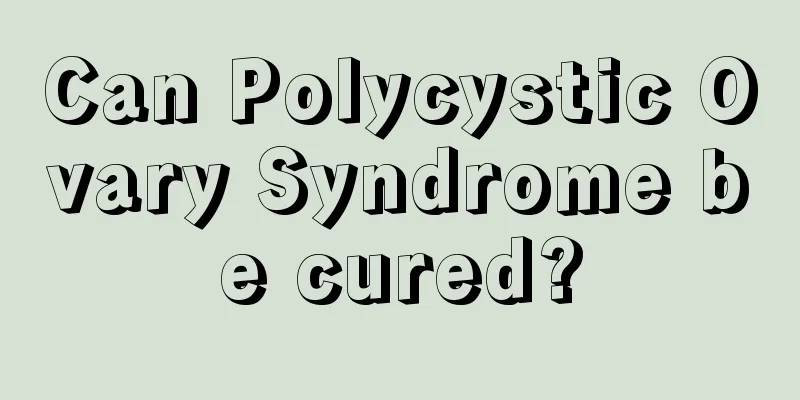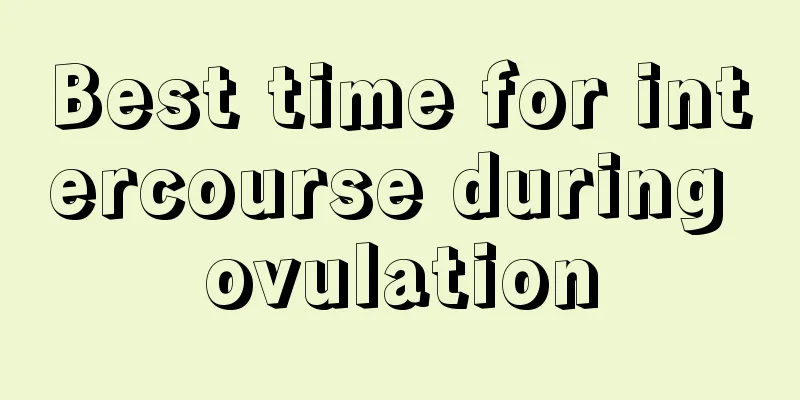Can Polycystic Ovary Syndrome be cured?

|
The name polycystic ovary syndrome is not unfamiliar to women, right? The incidence of this disease among women is not low. Simply put, polycystic ovary syndrome is actually an endocrine disorder, so don't panic if you suffer from this disease. In addition, the editor will tell you today the cause of polycystic ovary syndrome and how to treat it correctly without harming the female uterus. First of all, there are four factors to analyze the causes of polycystic ovary syndrome: First: adrenal cortex dysfunction. Second: Impairment of pituitary gonadotropin secretion. Third: functional defects in the enzyme systems required for ovarian steroid biosynthesis. Fourth: It may also be related to chromosomal inheritance. Clinical manifestations of polycystic ovary syndrome: 1. Infertility. Primary infertility is more common. 2. Obesity. Or there is only weight gain but obesity is not obvious. 3. Hairy, especially on the upper lips, arms and lower limbs. There may be one to several long hairs around the breasts and the midline of the lower abdomen. 4. Gynecological examination may palpate one or both ovaries. 5. Oligomenorrhea, oligomenorrhea, and secondary amenorrhea. Anovulatory menstruation, menorrhagia, excessive menstruation or functional uterine bleeding. Common treatments for PCOS: 1. General treatment. Patients should actively exercise, reduce the intake of high-fat and high-sugar foods, and lose weight. This can cause the androgen level to drop, which is beneficial for restoring ovulation. 2. Laparoscopic surgical treatment. If the above two methods are not effective, laparoscopic surgery should be considered. Under laparoscopy, the follicles are punctured to reduce the androgen level, thus achieving the therapeutic goal. 3. Drug treatment. Drug treatment can counteract the effects of androgens and induce ovulation in the ovaries. You can stop taking the medicine after the hormone levels are tested normal. Polycystic ovary syndrome is a relatively complicated disease, but patients should not feel overly worried or afraid because it can be treated. From this it can be seen that polycystic ovary syndrome is a very common gynecological disease in our lives. This gynecological disease is also easy to treat. In today's developed medical environment, everyone can rest assured about this situation. But the most important thing is to discover it early and go to the hospital for medical treatment as soon as possible. I hope everyone will pay attention to this. And pay attention to personal hygiene. |
<<: What are the benefits of soaking your feet every night during menstruation?
>>: What is better to eat during long menstrual period?
Recommend
What should I do if my breasts sag during breastfeeding?
After giving birth, mothers will find a problem: ...
Six major hazards of wearing a bra to sleep
In daily life, many women have the habit of weari...
8 months pregnant leucorrhea yellow
Menstruation is a normal physiological phenomenon...
4 things that overdraw your kidneys, some people actually do them every day!
Staying up late for a long time: In the fast-pace...
Is the egg standing upright on the Spring Equinox raw or cooked? What are the techniques for standing an egg upright on the Spring Equinox?
Standing an egg upright is a custom during the Sp...
Diagram of correction of female soldiers' O-shaped legs
In this season of showing legs, whether it is ear...
Symptoms and medications for pelvic inflammatory disease
What are the symptoms of pelvic inflammatory dise...
How harmful is it to wear headphones for a long time? Teach you how to use headphones correctly
Listening to music, watching TV shows, playing ga...
What is the diet for lactation during confinement?
Many pregnant women want to breastfeed after givi...
Is myopia hereditary?
June 6, 2022 is the 27th National Eye Care Day. S...
What should a girl do if she has stomach pain during her menstrual period?
Many female friends will have varying degrees of ...
Drinking milk will cause diarrhea, in fact, it is not only milk allergy, but also this reason
Milk is known as white blood, and drinking milk i...
What to do if you have a urinary tract infection during pregnancy
Urinary tract infection is a serious disease and ...
What causes bleeding during sex?
Husband and wife are most likely to have sex. A h...
Reasons why women grow beards
After puberty, our bodies gradually begin to matu...









